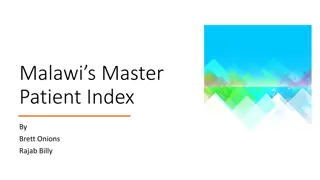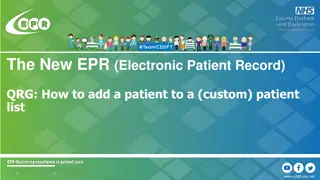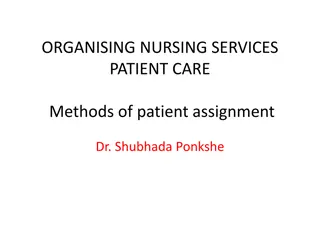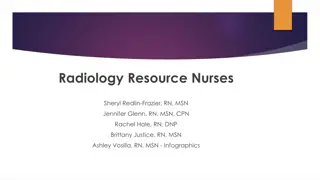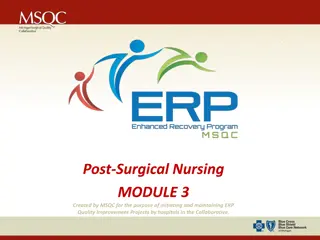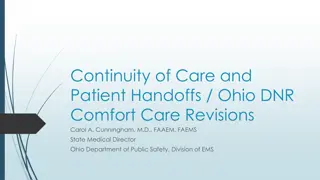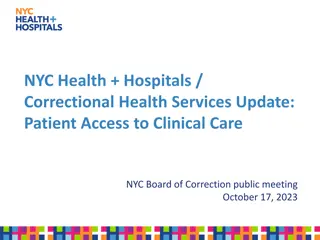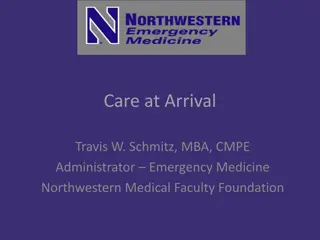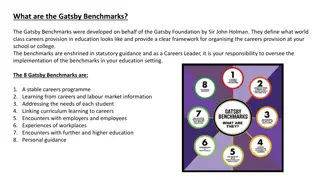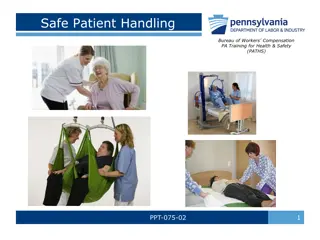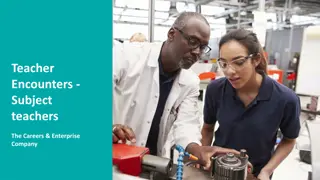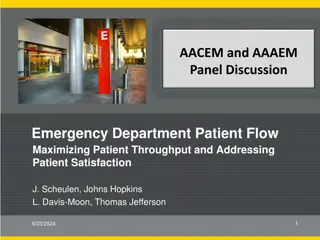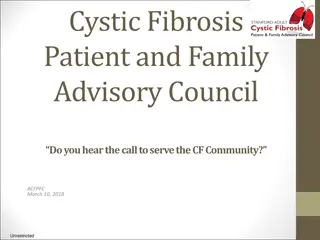Maximizing Learning Opportunities in Patient Encounters
Patient encounters offer diverse learning opportunities beyond clinical presentations, encompassing psychosocial factors, technical skills, human factors, case evolution, and more. Trainees can enhance their practice and understanding through structured exploration and reflection, guided by supportive trainers. Utilize different settings and methods to extract valuable insights from each encounter. Visit the RCPCH website to delve deeper into this enriching learning approach.
Uploaded on Sep 24, 2024 | 0 Views
Download Presentation

Please find below an Image/Link to download the presentation.
The content on the website is provided AS IS for your information and personal use only. It may not be sold, licensed, or shared on other websites without obtaining consent from the author. Download presentation by click this link. If you encounter any issues during the download, it is possible that the publisher has removed the file from their server.
E N D
Presentation Transcript
Principle 1: Every patient encounter is a learning opportunity
Principle 1: Every patient encounter is a learning opportunity It is easy to confine learning from patient encounters to the clinical condition that they present with At times, especially with the most common presentations, we don t value the learning that these encounters present. Each patient encounter is unique and brings new learning opportunities Translating these opportunities into concrete learning can be easily done Finding structure to identify learning and being creative in how this is expressed and relayed can provide multiple fruitful learning opportunities.
Principle 1: Every patient encounter is a learning opportunity Start with a patient encounter Identify if there are any clinical knowledge gaps that should be addressed But don t stop there Are there other factors in the case that you can learn from? Every new encounter provides new learning across a broad range of elements
Learning from each patient encounter Every patient encounter will have a variety of different factors that can be drawn upon to learn from. The examples shown are not exhaustive but are a starting point to show the variety of learning opportunities Trainees can also reflect and learn how their practice has developed over time and how and why it varies between clinical encounters Psychosocial factors Technical skills Human factors Patient encounter Case evolution and differentials Clinician experience Comparison to other cases Clinical knowledge of condition
Translating patient encounters into learning opportunities Trainees will identify their own learning opportunities, but should be supported and directed to explore learning opportunities by trainers Consideration of setting (e.g. clinic, inpatient ward etc.) in creating opportunities for learning Learning opportunities should be highlighted and enabled by supportive trainers Consider ad-hoc vs. structured opportunities for learning CbD request for a case vs. daily post ward-round group learning discussion See case studies for inspiration
Find out more on the RCPCH website www.rcpch.ac.uk/progressplus




